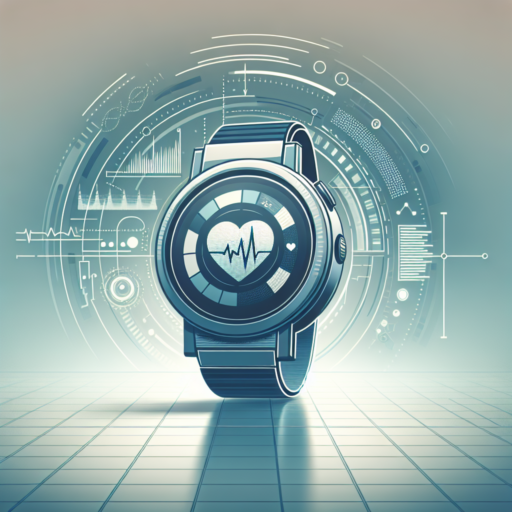What is the most accurate heart rate monitor?
Finding the most accurate heart rate monitor is essential for athletes, fitness enthusiasts, and individuals monitoring their heart health. Accuracy in heart rate monitors varies significantly depending on the technology used and the design of the device. Generally, heart rate monitors can be classified into two types: chest strap models and wrist-based models. Chest strap monitors are widely recognized for their precision, as they are closely positioned to the heart and measure electrical signals. On the other hand, wrist-based monitors, which utilize optical sensors to detect blood flow, have greatly improved in accuracy through advancements in technology and algorithms.
When discussing the most accurate heart rate monitors, it’s crucial to consider the context in which they will be used. For example, athletes looking for detailed heart rate analysis during intense workouts might prefer chest straps for their reliability and minimal lag. Recent models, such as the Polar H10, have set high standards for accuracy and connectivity, making them a favorite among professionals. Meanwhile, wrist-worn devices like the Garmin Forerunner series and Apple Watch have been praised for their convenience and continuous heart rate tracking capabilities, making them suitable for everyday use and less rigorous activities.
The choice of the most accurate heart rate monitor also depends on personal preferences and specific needs. Features such as real-time data synchronization, integration with fitness apps, waterproof designs, and long battery life play essential roles in determining the best option for an individual. Regardless of the choice, ensuring the heart rate monitor fits correctly and is used as per the manufacturer’s instructions is crucial for obtaining the most accurate readings.
Which heart rate monitor watch is best?
Choosing the best heart rate monitor watch depends greatly on personal needs, fitness goals, and budget. However, certain features stand out when considering the top picks in the market. These watches not only monitor heart rate but also come with a variety of fitness tracking capabilities to enhance your workout experience.
Key Features to Consider
When searching for the ideal heart rate monitor watch, several key features should guide your decision:
- Accuracy: The primary function of a heart rate monitor watch is to track your heart rate accurately. Look for watches that offer continuous, real-time heart rate monitoring.
- Connectivity: Integration with smartphones and fitness apps allows for a seamless tracking experience, enabling you to analyze your data and tailor your fitness regimen accordingly.
- Battery Life: Opt for watches with a long battery life to ensure your device keeps up with your daily activities without the need for frequent recharging.
- Comfort and Design: A watch that is comfortable to wear throughout the day and during various activities is crucial. Additionally, a design that suits your personal style will increase the likelihood of consistent use.
It’s also important to consider the specific functionalities that cater to your fitness activities. Whether you’re a swimmer, runner, or cyclist, some watches are tailored to specific sports, offering metrics and monitoring tailored to those activities.
In sum, the best heart rate monitor watch is one that meets your specific needs, offers high accuracy, and integrates well with your lifestyle. By focusing on the key features and considering your personal fitness goals, you can find a watch that not only monitors your heart rate effectively but also enhances your overall fitness journey.
What is the best rated heart rate monitor for running?
Finding the best rated heart rate monitor for running can significantly enhance your training sessions, helping you maintain the right intensity for optimal performance and safety. When it comes to the top picks, there are a few factors to consider, including accuracy, comfort, and connectivity options. While there isn’t a one-size-fits-all answer, certain models stand out for their precision, ease of use, and integrative features with fitness apps and devices.
Key Features to Look For
When selecting the best heart rate monitor for your running routine, prioritize devices offering real-time tracking, a comfortable fit, and seamless integration with other devices. Accuracy is paramount, as it ensures you’re training within your target heart rate zones. Additionally, consider monitors that provide a comprehensive analysis of your performance, such as VO2 max estimates and recovery insights, to further optimize your training.
Among the various options, chest strap monitors are often lauded for their precision and reliability, making them a favorite among serious runners. However, wrist-based monitors have significantly improved in accuracy and offer the convenience of all-day wear. The choice between the two largely depends on personal preference and specific training needs. Ultimately, the best heart rate monitor for running is one that fits well with your routine, providing accurate data and insights to help you achieve your fitness goals.
No se han encontrado productos.
What heart monitor is best at detecting irregular heartbeats?
Detecting irregular heartbeats, medically known as arrhythmias, requires a sophisticated and reliable heart monitor. Several devices stand out in the market for their precision and ease of use. Among them, devices that cater specifically to providing real-time monitoring and alert systems for irregular heartbeats have gained popularity for their effectiveness in capturing even the most subtle irregularities.
Leading Heart Monitors for Arrhythmia Detection
The market boasts several high-quality heart monitors, but some are particularly noteworthy for their arrhythmia detection capabilities. Devices like the Apple Watch Series, with its ECG app, have been clinically recognized for their ability to detect signs of atrial fibrillation, a common type of arrhythmia. Similarly, the Fitbit Charge series offers continuous heart rate monitoring, employing algorithms designed to alert users to abnormal heart rhythms. These wearables combine convenience with technology, allowing individuals to monitor their heart health seamlessly in their daily lives.
For those seeking a more clinical-grade monitor, portable ECG monitors like the KardiaMobile by AliveCor offer a higher level of precision. This pocket-sized device pairs with a smartphone app, providing a detailed ECG analysis that can detect atrial fibrillation, bradycardia, tachycardia, and other forms of irregular heartbeats. The ease of use and the comprehensive nature of the readings make devices like KardiaMobile invaluable for those who require regular monitoring.
When it comes to identifying the best heart monitor for detecting irregular heartbeats, it’s clear that a combination of advanced technology, user-friendly interfaces, and clinical accuracy are key factors. Whether for daily wear or specific health monitoring purposes, selecting a device that effectively balances these aspects can significantly enhance one’s ability to keep track of heart health and act promptly on any irregular findings.




